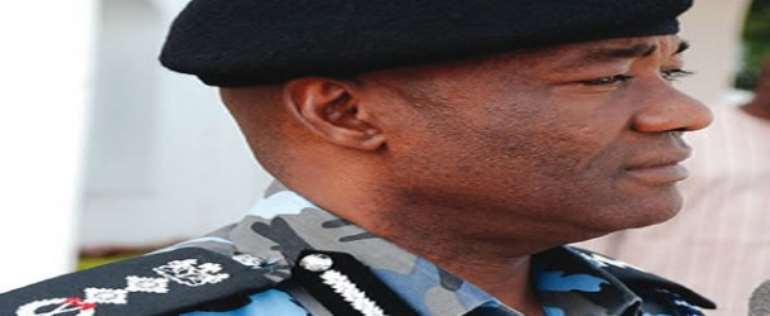Police should find Oyerinde's killers – Punch

Nigeria's sordid record of unresolved high profile murder cases should not be further damaged by a shoddy handling of the May 4, 2012 killing of Olaitan Oyerinde, a Principal Private Secretary to Governor Adams Oshiomhole of Edo State. It is therefore imperative that the police should muster the resolve to unravel at least one murder case for the sake of its dented image.
Sad as it is, the nation woke up recently to another needless controversy as government agencies, including the Office of the Attorney-General of the Federation, the Nigeria Police and the State Security Service, were locked in rounds of needless and destructive arguments on Oyerinde's murder case. The AGF's representative, Thompson Olatigbe, had told the House of Representatives Committee on Public Petitions hearing that officials of the ministry were 'confused' because of the different sets of suspects presented for prosecution by the SSS and the police in the same murder case.
Then, enter the chief law officer of the country, Mohammed Adoke. Apparently sensing this untenable position, the AGF, who appeared before the committee the following day, said he sincerely regretted the misrepresentation and apprehension that Olatigbe's submission had generated in the minds of members of the committee, as well as the general public. He then argued that the Federal Ministry of Justice had come to the reasoned conclusion that the power to investigate crimes of the nature under consideration (murder) resided with the police, while the power to gather intelligence lay with the SSS, and that murder, the offence allegedly committed by the suspects, 'is exclusively within the jurisdiction of the states in the Federation. The Criminal Procedure Act, Cap., C. 38 LFN, 2004 is very clear on this matter.'
The contradictory submissions from the AGF office raise many burning questions. As the Edo governor said, 'If a governor can't get justice, what is the hope of a tomato seller? What is the hope of a roadside mechanic? What is the hope of an okada rider (commercial motorcyclist)?'
Is there any legal inhibition preventing the SSS from providing other law enforcement agencies with cooperative services? This kind of situation does not help the country in the comity of nations; neither is it helpful to the police, who have a battered image. Oshiomhole had accused the police of a shoddy investigation in the case. He alleged that they (the police) were shielding the real offenders in the matter, and that they had been going round detaining innocent people - like David Ugolor - for the murder. Oshiomhole said, 'The police deliberately went out to fish for innocent people to parade as suspects in this case in order to divert attention or to criminalise innocent Nigerians.'
This is serious. The police have not been diligent in their investigation. Investigators have uncovered a handful of simple facts about the murder which have not been controverted. At least, the SSS Director-General, Ekpeyong Ita, told the House committee of how the service used details of the IMEI numbers of Oyerinde's phones that were stolen by his assailants to trace and arrest them. What then is the interest of the police? As usual, who are the killer gangs behind Oyerinde's assassination? It is, indeed, another grim reminder of how for decades the police have been used to cover up high profile murders. Why is it that murder cases, starting from that of prominent journalist, Dele Giwa, in 1986, to that of the former AGF, Bola Ige (in December 2001), Aminasoari Dikibo, Harry Marshall, (and many others), have not reached a conclusive end, though the police have spent millions of naira on their so-called investigation? These are cases that will haunt the Nigeria Police for years.
But unsolved killings give Nigeria the unwelcome label of being a failing state. The police should take a cue from the diligent prosecution of 'Boy Adam', a Nigerian boy who was murdered in London in 2001. Although it took many years, the Metropolitan Police painstakingly pieced information together - even visiting Edo State in Nigeria in 2011 - in order to get to the root of the case. This is the type of pragmatic step the police in Nigeria need to take, so that the surreal feeling that they cover up well-connected offenders will be dispelled.
Crime is part of human existence. But it is what a society does when a crime is committed that tells whether it is a failing society or not. The legion of unresolved murder cases is an indication that Nigeria is headed for anarchy. This is very damaging to the image of the police and the Inspector-General of Police, Mohammed Abubakar, should not be seen to be promoting it. For all the hype about transparency and reform, not so much has changed in the commitment of the police to public safety, security and service to the citizens of Nigeria and visitors alike. Changing the image of the police should be the preoccupation of the IG.
The IG should use the opportunity offered by the Oyerinde case to make a clear statement about his new police.
